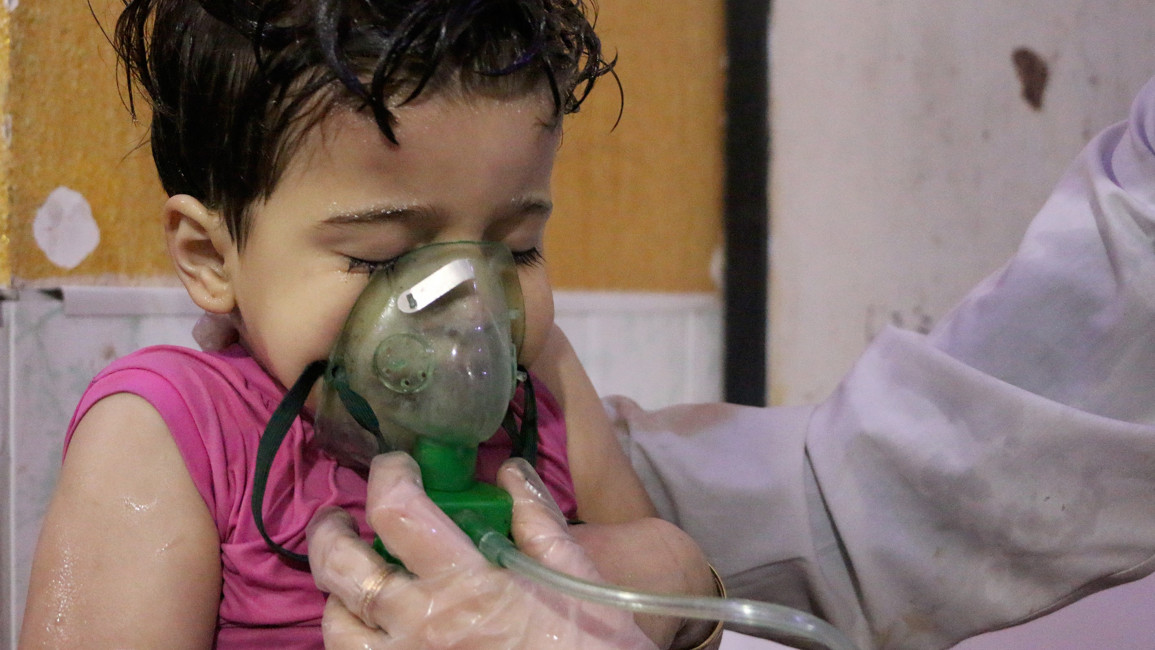Syria rejects weapons watchdog report on 2018 chlorine attack
Syria rejected a report by the global chemical weapons watchdog that blamed the Assad regime for a 2018 chlorine attack that killed 43 people in a suburb of Damascus.
Damascus and its ally Moscow say the April 7, 2018 attack in the town of Douma was staged by rebels and rescue workers, as it stated the report published on Friday by the Organisation for the Prohibition of Chemical Weapons (OPCW) "lacks scientific proof".
"Syria totally rejects the report" the foreign ministry said in a statement carried by state news agency SANA.
However, the OPCW dismissed claims that rebels and emergency workers staged the attack, saying there were "reasonable grounds to believe" that at least one Syrian regime air force helicopter had dropped two cylinders of the toxic gas on Douma during Syria's civil war.
Lawyers highlighted the "credibility" of the OPCW investigation, emphasising their belief that Syria was the perpetrator.
"In order to increase credibility and impartiality, the investigators discussed all possible scenarios… [the report] was at the highest levels of professionalism, impartiality and proficiency," lawyer Abdel Nasser Hoshan told The New Arab’s Arabic language service Al-Araby Al-Jadeed.
Researchers also condemned the regime’s denial of the report.
"We are used to seeing the Syrian regime in a state of continuous denial when confronted with any evidence proving its crimes… it’s not surprising," Wael Alwan, a researcher at the Jusoor Centre for Studies, told Al-Araby Al-Jadeed.
"We have seen this over many years during the arrest of its opponents, and [the regime’s] denial of their presence in prisons, and then during peaceful demonstrations when [the regime] shot [at protesters] and blamed armed groups for it… [and] as [the regime] killed thousands and continues to deny it," Alwan added.
Damascus denies the use of chemical weapons and insists it has handed over its stockpiles under a 2013 agreement, prompted by a suspected sarin gas attack that killed 1,400 in the Damascus suburb of Ghouta.
Syria's voting rights at the OPCW were suspended in 2021 over its refusal to cooperate after being accused of more chemical attacks.
The Syrian conflict began in 2011 when the regime brutally cracked down on pro-democracy protesters demanding that President Bashar Al-Assad steps down from power.
During the war over 500,000 people have died, mostly at the hands of the regime and its ally Russia.



